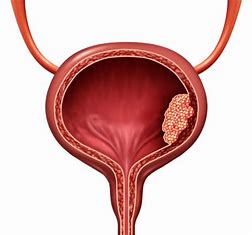Bladder cancer, especially in its muscle-invasive form, poses a formidable challenge that affects not only the body but also the mind and intimacy. In these trying times, it's crucial to realize that help is always available, both medically and emotionally.
Medical Support
The medical field is constantly advancing, and advanced treatments are available for muscle-invasive bladder cancer. Maintaining open communication with healthcare professionals is vital. Discuss your concerns, questions, and treatment options with your doctor. They are there to guide and support you on your journey to recovery.
Psychosocial Assistance
In addition to medical help, psychosocial support is crucial. Therapists and counselors are trained to assist in coping with the emotional challenges associated with muscle-invasive bladder cancer. They can provide support not only to the patient but also to the family in understanding and managing the many facets of this disease.
Support from Loved Ones
Family and friends play an invaluable role in supporting someone experiencing muscle-invasive bladder cancer. Sharing feelings and concerns with loved ones can be a powerful source of emotional support. Building a network of people who care for you enhances resilience and helps you face the challenges.
Community Resources
There are also numerous community resources available for those living with bladder cancer. Support groups, online forums, and nonprofit organizations can be valuable sources of information and understanding. Sharing experiences with others who have faced similar challenges can create a sense of community and empowerment.
Hope for the Future
While muscle-invasive bladder cancer is a profound diagnosis, it's important to remember that there is always hope. Medical advancements continue to progress, and there are cases of triumph and recovery. Stay positive and surround yourself with people and resources that encourage you on your path to recovery.
Conclusion
Living with muscle-invasive bladder cancer is a challenge, but it's also a journey you don't have to undertake alone. Help is always available, both medically and emotionally. By utilizing these support systems, you can not only confront the physical struggle but also restore the intimate aspects of your life and tread a path toward hopeful recovery. Remember that you're not alone in this battle, and there is always a helping hand to guide you.





